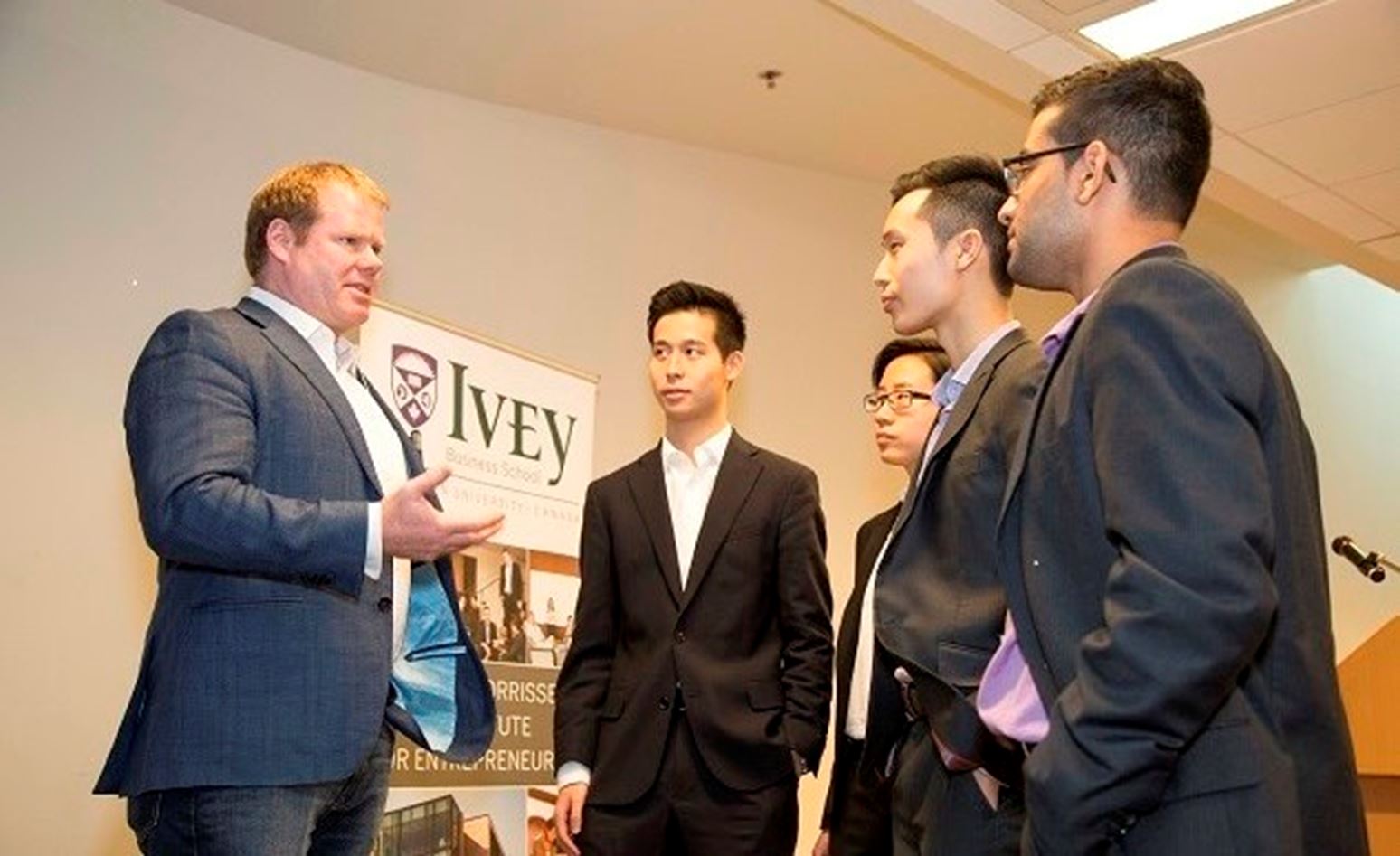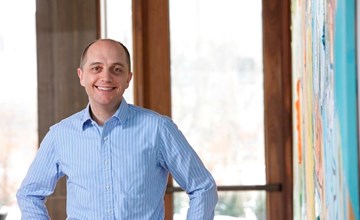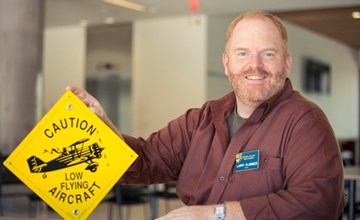Tight deadlines. Copious fact-finding and careful planning. Long days and late nights.
These are the realities of an entrepreneur’s life. More than 200 HBA students participating in the Ivey Field Project-New Venture Project (IFP-NVP) had similar real-world experiences as they went through the process of developing a new business.
In only three months.
Related to this story
IFP-NVP is a team-based field project that takes students through the process of developing and refining an idea for a new venture; researching and analyzing the opportunity; writing a business plan; and pitching that plan to some of Canada’s top entrepreneurs and potential investors. The investor pitch experience is intense and similar to Dragons’ Den, where students get critical feedback from judges. Throughout the project, students receive guidance from Entrepreneurs-in-Residence who share their entrepreneurial experience and help the teams develop their ideas and prepare business plans.
Typically running September to March, the program format changed this year to make it compressed and more reflective of the real world. The program began in September, with students pitching their business plans by late November, and wrapped up in early December so the bulk of the business planning was completed within three months.
“People are liking the changes, particularly the Entrepreneurs-in-Residence, because they see the teams accomplishing more and actually getting tasks much more tightly completed,” said Assistant Professor Larry Plummer, MBA '80 Fellow in Entrepreneurship and Academic Director of the New Venture Project. “NVP is a real-world experience, but in sheltered waters. It’s like if you want to become a boat handler, you first practise near shore. The students still don’t appreciate how much work it’s going to be to start their business, but through NVP they have the experience of being held to very exact standards and facing the gauntlet of our demanding judges.”
Dave Eason, MBA ’99, CEO of Berkeley Payment Solutions, has been an Ivey Entrepreneur-in-Residence and a presentation judge for seven years. He said he became involved with NVP because it offers a valuable education for the real world – even more so in the new format.
“The quality of the presentations is comparable to past years, but the pressure on the students makes it more real world. They’re living it daily and putting in long hours just to get their projects done in time,” he said. “I think most entrepreneurs in Canada have not historically come from schools like Ivey so having a program like this where we are setting up our best and brightest to be entrepreneurs has huge value for our country. I love being involved in it.”
Lessons on entrepreneurship
For HBA student Lynn Hu, who worked with the team, Thymely, on a plan for a healthy meal subscription service for young professionals in Toronto, the biggest lesson was how much there is to learn about entrepreneurship.
“I realized how much I don’t know about starting a business. In our other programs we learn about a lot of business functions at a very high level. But the biggest challenge for our project came down to the logistics of how you would operate a kitchen and how to get the delivery and distribution to work. These were very granular details that we often overlook and we only learned about them once we tried to see the feasibility of our project,” she said. “Most of what we learn in other programs is very segmented to a particular function, so being able to bring together all the skill sets and being able to test out transforming our idea to a business plan was a great experience.”
HBA student Marco Chan, also from Thymely, said NVP allowed him to better understand the challenges entrepreneurs face, which is vital knowledge given that he would like to eventually start his own business.
“In a lot of our courses and with the cases, we are placed in a theoretical situation. This was much more practical. We went through many pivots and had some long, late nights, but it was worth it because, in the end, I had a much better understanding of what it would be like to start my own business,” he said. “The case method brings us halfway there, but we still need real-life training. NVP was a first step to really understanding what it’s like for an entrepreneur in the real world.”
The new condensed NVP format enables the teams to move on to the next step of launching their businesses on their own time in their second term, with extracurricular support from the Pierre L. Morrissette Institute for Entrepreneurship staff and faculty.
Workshops part of next steps
Plummer said the long-term goal is for the Institute to offer students the opportunity to participate in additional workshops in their second term focused on topics such as sales strategy, working with investors, managing costs, and legal and liability issues, and potentially feed them into various startup initiatives like Western University’s Campus-Linked Accelerator program.
“We’re not just ratcheting up the rigour of the NVP program without reason. We want teams to get to the next step of launching their businesses, either on their own or through some type of business accelerator program,” he said. “Some students complete NVP and think they’re done, but the business plan is only the first step. After NVP, students are only standing at the edge of the nest ready to jump off. With our help, some teams will hopefully take the leap.”
Plummer added that two teams from this year’s crop are planning on starting their businesses in early 2015.
“This is music to our ears,” said Plummer.
So just how far can you go in only three months? Here are some of the ideas student teams presented at the NVP pitch day on November 28:
- Team Ugly Fruit is investigating selling blemished fruit and vegetables to restaurants at a discounted rate to help address the problem of food waste;
- The Tracks team looked into chip devices for tracking stolen high-value bicycles;
- Team Smarty Pants is developing an online diaper subscription service paired with a fitting device to prevent baby diaper leakage;
- The Shipr team pitched a reverse auction process to help small businesses find shippers with the best prices;
- Team CANEducate explored working with the Manitoba School Board to offer Chinese schools access to English instruction; and
- The Dream House team pitched a website that helps owners of unfinished houses in China to become general contractors and outfit the interiors themselves.



